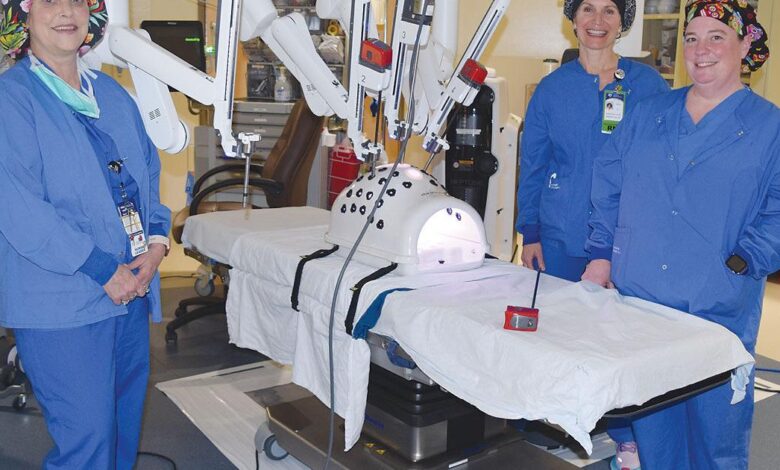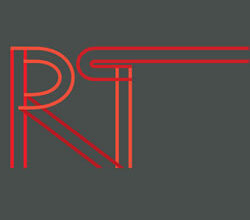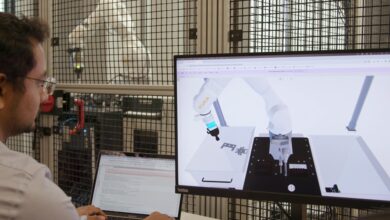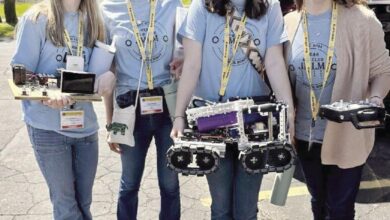Samaritan Pacific Communities Hospital recently joined an elite group. It is now among just a few dozen Critical Access Hospitals across the U.S. to offer robotic-assisted surgery — and the first Critical Access Hospital in Oregon to use it as an alternative to both traditional open surgery and conventional laparoscopy.
“This is an amazing moment for our small and thriving community hospital,” said Aimee Thompson, chair of the Pacific Communities Health District Board of Directors.
“The da Vinci robotic-assisted surgery system is a showcase of technological achievement. It represents an enormous advancement in safe and precise surgical procedures,” Thompson said. “The investment made by Samaritan Health Services and the Pacific Communities Health District affirms their dedication to this hospital and to our community. We are so appreciative.”
The milestone was celebrated at an open house held Monday, April 15. Those who attended the invitation-only open house were allowed to enter the robotic-assisted surgery suite after putting on surgical bunny suits, bouffant caps and shoe covers. There, they had a close-up view of the high-tech da Vinci system, and several of them also took turns at the ergonomic surgeon’s console to experience the ease and precision now available to surgeons. Some manipulated the tools to pick up and place tiny rubber bands on top of little cones, while others picked up a penny and flipped it over to see the statue of Abraham Lincoln inside the Lincoln Memorial, under extreme 3D magnification.
One of the open house attendees was Dr. Ralph Breitenstein, who has served on the PCHD board for the past decade and was a determined advocate for the robotic surgery program in Newport. He was surprised with the announcement that the robotic surgery suite would be named in his honor and that a wall plaque would be placed outside its doors to remind all who enter of his many valuable contributions.
The da Vinci robotic-assisted surgery system has been in use at the Newport hospital since early April. This cutting-edge technology empowers surgeons in Newport with enhanced precision and control while conducting procedures.
Although it is often referred to as a “robot,” the da Vinci system cannot operate on its own. A surgeon is always in control, using hand movements to generate smaller, more precise movements of tiny instruments inside the patient’s body.
Benefits to the patient include smaller, more precise incisions; reduced blood loss; minimized scarring; lower levels of post-operative pain; diminished risk of infection; shorter hospital stays; accelerated recovery times and prompt resumption of normal activities.
Benefits to the surgeon include expanded capabilities for tackling complex procedures; enhanced 3D visualization of the surgical field; improved dexterity and precision; mitigation of hand tremors; superior control over surgical instruments; potential reduction of fatigue and physical strain, thereby extending surgeons’ careers; and attractiveness as a training resource for newer surgeons, thus enhancing recruitment efforts.
Thus far, the surgeons who have been trained to perform robotic-assisted surgeries at the Newport hospital are General Surgeons David Larsen, MD, and Nathaniel Uecker, MD; OB/GYN Michael Swift, DO; and Urologist Layron Long, MD.




